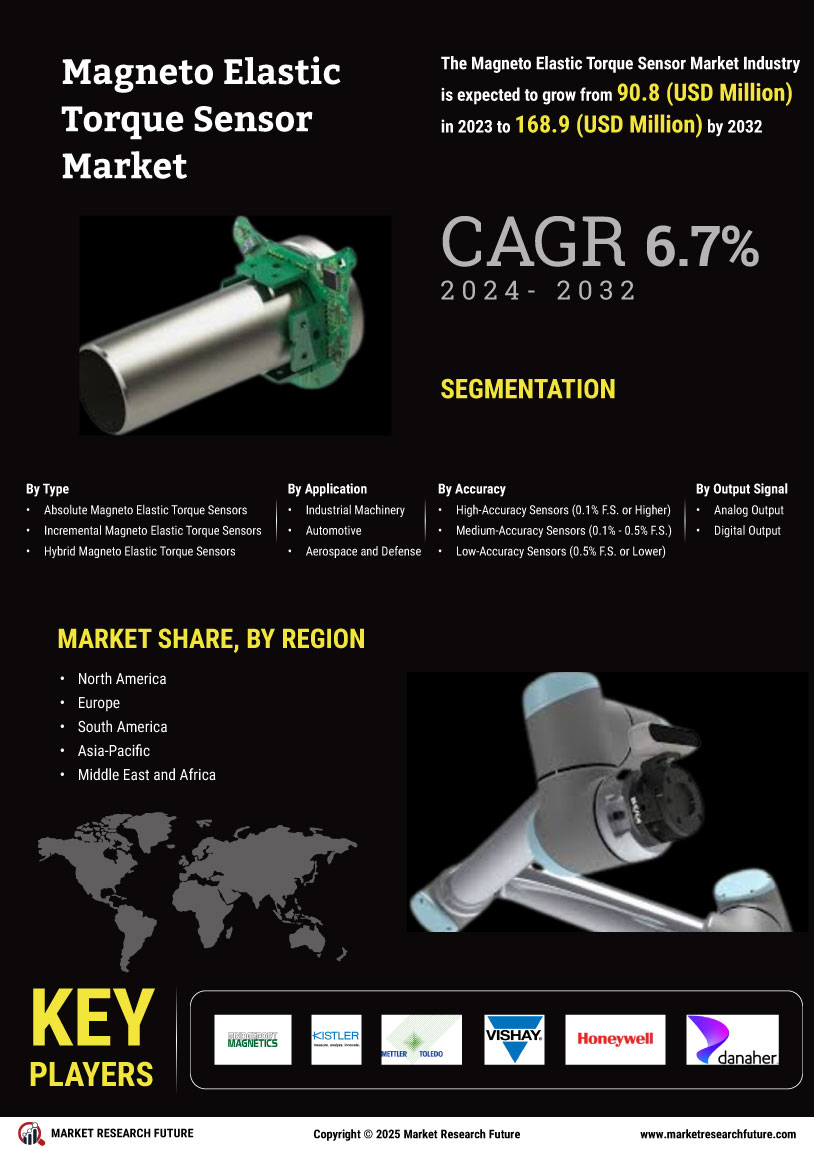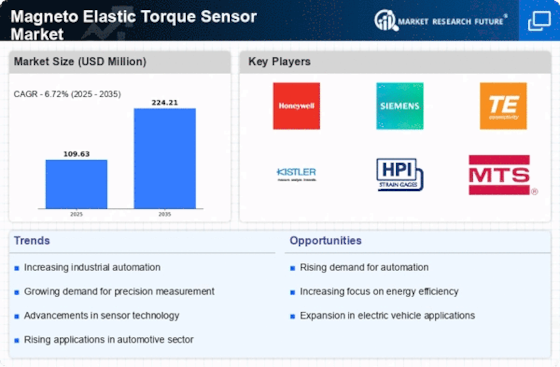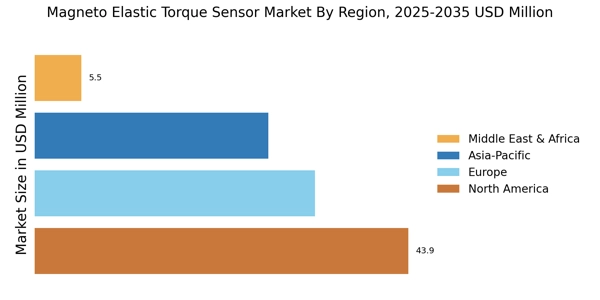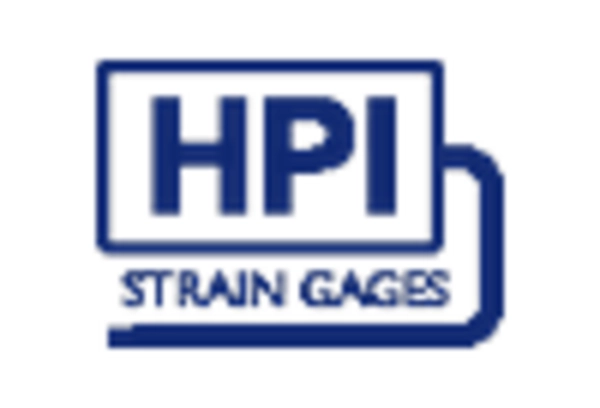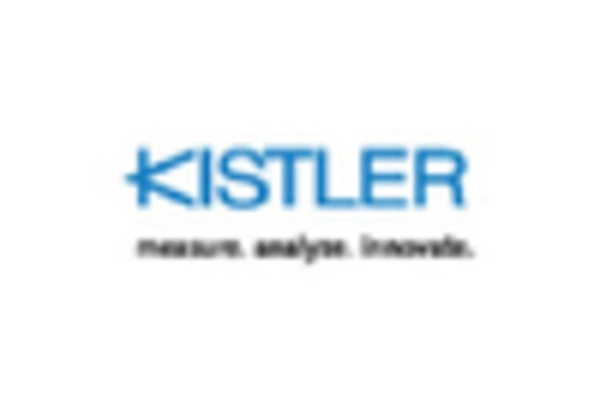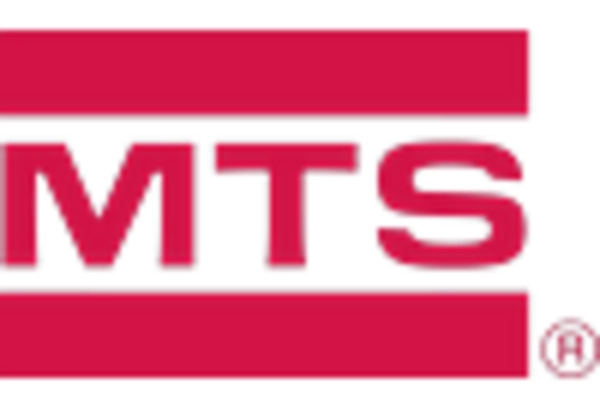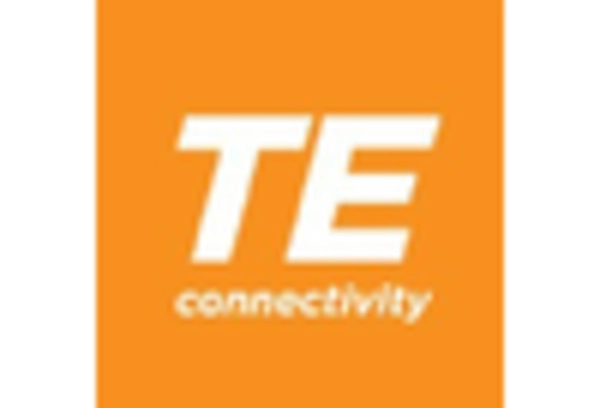Advancements in Sensor Technology
Technological advancements in sensor technology are playing a crucial role in shaping the Magneto Elastic Torque Sensor Market. Innovations in materials and manufacturing processes are leading to the development of more sensitive and reliable torque sensors. These advancements are expected to enhance the performance characteristics of magneto elastic torque sensors, making them more appealing to various industries. The market for sensor technology is projected to grow at a CAGR of around 7% in the upcoming years, indicating a robust demand for advanced measurement solutions. As industries increasingly seek to integrate cutting-edge technologies into their operations, the adoption of magneto elastic torque sensors is likely to rise, driven by their ability to provide accurate and real-time torque data.
Growth in Renewable Energy Sector
The renewable energy sector is witnessing substantial growth, which appears to be influencing the Magneto Elastic Torque Sensor Market positively. As the world shifts towards sustainable energy sources, the demand for efficient torque measurement in wind turbines and other renewable energy systems is increasing. The Magneto Elastic Torque Sensor Market is projected to expand at a CAGR of approximately 8% over the next decade. This growth is likely to create opportunities for magneto elastic torque sensors, which can provide accurate torque measurements essential for optimizing the performance of renewable energy systems. The ability of these sensors to operate in harsh environments further enhances their appeal in this sector, potentially leading to increased adoption and market expansion.
Industrial Automation and Robotics
The ongoing trend towards industrial automation and the increasing use of robotics in manufacturing processes are likely to propel the Magneto Elastic Torque Sensor Market. As industries strive for greater efficiency and productivity, the demand for precise torque measurement in automated systems is becoming more pronounced. The market for industrial automation is anticipated to grow significantly, with estimates suggesting a CAGR of around 9% in the coming years. This growth is expected to drive the adoption of magneto elastic torque sensors, which offer high accuracy and reliability in torque measurement. These sensors are particularly valuable in applications such as assembly lines and robotic arms, where precise torque control is essential for maintaining product quality and operational efficiency.
Rising Demand in Automotive Sector
The automotive sector is experiencing a notable increase in the demand for advanced torque measurement solutions, which is likely to drive the Magneto Elastic Torque Sensor Market. As vehicles become more sophisticated, the need for precise torque measurements in electric and hybrid vehicles is becoming paramount. This trend is underscored by the fact that the automotive industry is projected to grow at a compound annual growth rate of approximately 4.5% over the next few years. Consequently, manufacturers are increasingly adopting magneto elastic torque sensors to enhance vehicle performance and safety. The integration of these sensors into various automotive applications, such as powertrains and drivetrains, is expected to bolster the market further, as they provide real-time data that can optimize engine efficiency and reduce emissions.
Increasing Focus on Quality Control
The increasing emphasis on quality control across various industries is likely to drive the Magneto Elastic Torque Sensor Market. As manufacturers strive to meet stringent quality standards, the need for precise torque measurement becomes critical. Industries such as aerospace, automotive, and manufacturing are particularly focused on enhancing their quality control processes. The market for quality control solutions is expected to grow significantly, with estimates suggesting a CAGR of approximately 6% in the coming years. This trend is likely to result in a higher adoption rate of magneto elastic torque sensors, which provide accurate torque measurements that are essential for ensuring product quality and compliance with industry standards. The ability of these sensors to deliver reliable data can help manufacturers reduce defects and improve overall operational efficiency.
